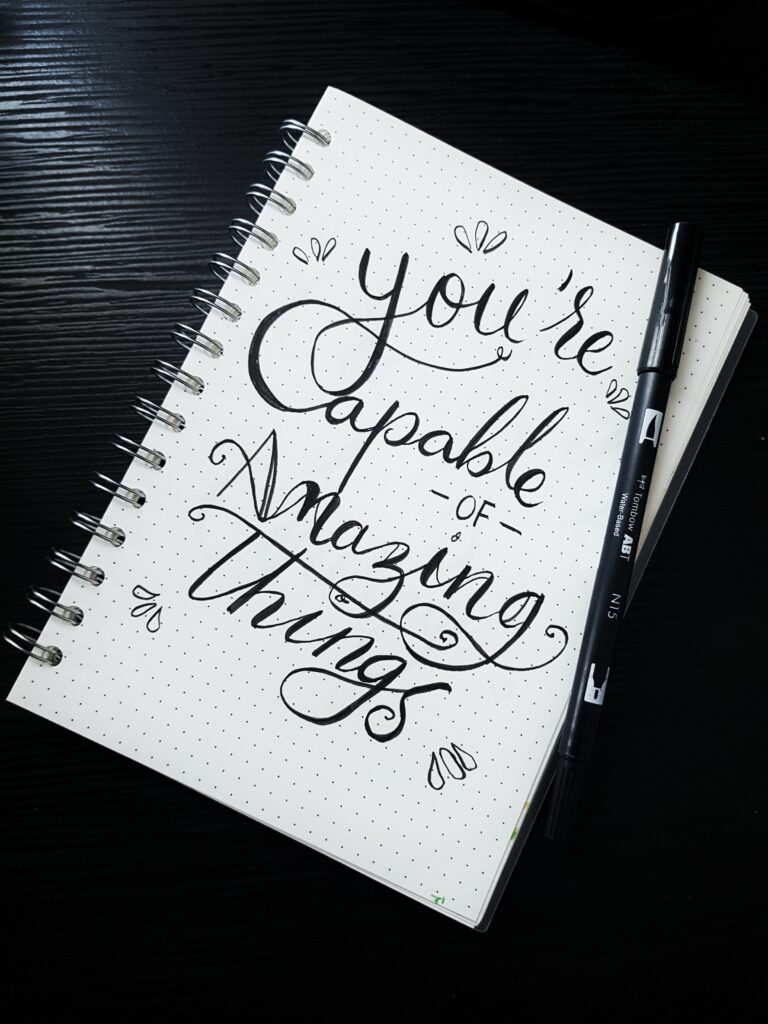
In a continuously evolving world, it is of fundamental importance to dedicate time to cultivate our personal growth and explore new horizons. This article will be your guide to deepen your self-knowledge and explore paths of personal growth that will lead you towards a more fulfilling and meaningful life.
Inner evolution represents a journey of self-awareness that connects us with our deeper selves. It is an opportunity to challenge our limiting beliefs, explore new perspectives, and develop our potential. In a hectic and chaotic world, personal growth offers us a space for reflection and self-exploration, enabling us to align our values with our actions and create a meaningful life.
During this journey of growth, we will explore different approaches and practices that can foster our inner evolution. We will discuss thought-provoking insights to cultivate mindfulness of the present moment, self-reflection exercises to understand our strengths and weaknesses, and strategies to face daily challenges with greater resilience.
Furthermore, we will pay special attention to the realm of interpersonal relationships, as they play a fundamental role in our personal growth. We will explore how to cultivate healthy and meaningful relationships, how to develop empathy and effective communication, and how to manage conflicts constructively.
We firmly believe that inner evolution is a journey accessible to everyone, regardless of age, background, or life experiences. Take your determination by the hand and let yourself be guided on this journey of personal growth that will lead you to discover your most authentic potential and live a life full of meaning.
Knowing yourself
Knowing yourself is one of the most significant steps along the path of personal growth. This journey of self-exploration offers us the opportunity to look beyond the surface, delve into the depths of our being, and embrace our entire essence. Often, in the frenzy of daily life, we get lost among the multiple facets of the roles we play in the external world, ignoring the inner riches we possess.
Self-knowledge goes beyond a simple list of characteristics or interests. It is a process of introspection that allows us to understand our values, desires, fears, and most authentic goals. Looking within ourselves enables us to identify our passions, recognize our strengths, and accept our vulnerabilities. This awareness empowers us to break free from the chains of self-judgment and embrace our uniqueness.
An essential element in knowing oneself is being honest with oneself. We must be willing to sincerely look within, accepting the less pleasant parts and confronting the shadows that may reside within us. It is only through this courageous act of self-reflection that we can grow and overcome obstacles that could hinder our path.
Once the door to self-discovery is opened, new opportunities for growth and personal fulfillment also emerge. Knowing our true values and passions allows us to make more conscious and purposeful decisions, both in our career and in our interpersonal relationships. Additionally, it fosters greater self-confidence as we align with our authenticity, without the need to seek external approval for validation.

Challenging Limiting Beliefs
Challenging limiting beliefs is an important and powerful process to achieve greater self-esteem, self-confidence, and personal growth. Limiting beliefs are those negative thoughts and beliefs that prevent us from realizing our full potential and living a fulfilling life. Often, they are learned during developmental stages and can persist into adulthood.
The first step in addressing these limiting beliefs is becoming aware of them. These self-limiting beliefs are often deeply ingrained in our minds, perceived as irrefutable truths. However, becoming aware of these self-limiting thoughts is the first step to transform them. We can explore them through reflection and self-observation, asking ourselves where they come from and what past experiences have fueled them.
Once identified, it is crucial to challenge these limiting beliefs with critical and realistic thinking. We can question whether there is concrete evidence supporting these beliefs or if they are based on unrealistic expectations or irrational fears. Often, we realize that these beliefs result from self-sabotage and do not reflect our true ability and worth.
Subsequently, we need to replace these limiting beliefs with more positive and encouraging thoughts. We can adopt positive and realistic affirmations that help us change our attitude towards ourselves and our abilities. For instance, instead of saying “I am not good enough for this job,” we can replace it with “I am competent and capable of facing challenges.”
Moreover, seeking support and encouragement from trusted individuals can be very helpful during this process of challenging limiting beliefs. Friends, family, or a therapist can provide an additional perspective, encouraging us to see our capabilities and potential more realistically.
Challenging limiting beliefs requires time, patience, and perseverance, but it is an essential step to grow and develop as individuals. By freeing ourselves from these self-limiting beliefs, we can open the doors to new opportunities, develop greater self-confidence, and reach our true potential.
Cultivating Resilience
Cultivating resilience is a fundamental process to face life’s challenges and adversities with strength and courage. Resilience can be seen as a form of adaptability, an inner resource that allows us to overcome obstacles and bounce back after a fall.
Essentially, resilience is a combination of mental attitudes and behaviors that help us maintain balance during difficult times. Firstly, awareness of our emotions is a crucial starting point. Learning to recognize, accept, and manage negative emotions allows us to confront them constructively, avoiding being overwhelmed by them.
Another important aspect in cultivating resilience is developing mental flexibility. This means adopting an open and adaptable perspective towards changes and challenges, seeking creative and alternative solutions when things do not go as planned.
Furthermore, social support plays a crucial role in building resilience. Having a supportive network of friends, family, or colleagues provides a safe environment to share our concerns and receive practical and emotional support.
Stress management is also a key skill in cultivating resilience. Learning relaxation techniques, meditation, or physical exercise can help us reduce tension and maintain calm during turbulent periods.
Another often overlooked but essential aspect is the ability to learn from past experiences. Reviewing the difficult moments we faced in the past and analyzing the strategies we adopted allows us to gain greater self-awareness and develop more confidence in our abilities.
Finally, cultivating resilience requires time and patience. It is a gradual process that involves accepting that life is full of ups and downs, but we can always rise and move forward.
In conclusion, cultivating resilience is a precious quality that allows us to face life with determination and optimism. By cultivating resilience, we can transform difficulties into opportunities for personal growth and continuous improvement.

Cultivating Meaningful Relationships
Cultivating meaningful relationships is one of the most valuable aspects of human life. The connections we establish with others influence our emotional, mental, and even physical well-being. These relationships give us a sense of belonging and enrich us on a personal level.
A key element in cultivating meaningful relationships is authentic communication. Being open and honest with others, expressing our thoughts and feelings respectfully, creates an environment of mutual trust. Listening attentively to others, without judgment, is equally important, as it allows us to understand their experiences and feelings.
Additionally, sharing common interests can strengthen relationships. Engaging in activities that both parties enjoy creates a special bond and fosters moments of shared joy and fun.
Empathy is a fundamental element for cultivating meaningful relationships. Putting ourselves in the shoes of others, trying to understand their feelings and perspectives, makes us more compassionate and able to provide genuine support when they need it.
Trust is a crucial pillar in every meaningful relationship. Being reliable, keeping promises, and respecting others’ privacy are ways to build and maintain mutual trust.
Finally, dedicating time and effort to meaningful relationships is essential. Like anything in life, these relationships require constant care and attention. We should be willing to invest our time, listening, and affection to build authentic and lasting connections.
In conclusion, cultivating meaningful relationships is a rewarding process that enriches our existence. Through authentic communication, shared interests, empathy, and trust, we can create deep and meaningful bonds with others that support and enrich us along life’s journey.
Nurturing the Body and Spirit
Nurturing the body and spirit is essential for the well-being and balance of our lives. On one hand, the body requires a balanced diet, physical exercise, and adequate rest to function at its best. Consuming nutrient-rich and diverse foods, combined with regular physical activity, helps us maintain a healthy and energetic body. Rest and sleep are equally important, as they allow the body to regenerate and recover from daily stresses.
On the other hand, nurturing the spirit means taking care of our emotional and mental well-being. This can be achieved through various practices, such as meditation, mindfulness, art, music, or connecting with nature. Taking time for reflection, practicing self-compassion, and cultivating a positive mindset are key elements in nurturing our spirit.
Meaningful relationships also play a fundamental role in nurturing the spirit. Sharing happy moments with friends and family, experiencing life together, enriches our inner world and gives us a sense of belonging and connection.
In summary, nurturing the body and spirit is a holistic process that requires a balance between physical and emotional care. Taking care of our body through good nutrition, physical exercise, and adequate rest is crucial to keeping it healthy. At the same time, we should cultivate our spirit through practices that promote mental and emotional well-being, creating a sense of serenity and happiness in our lives.


